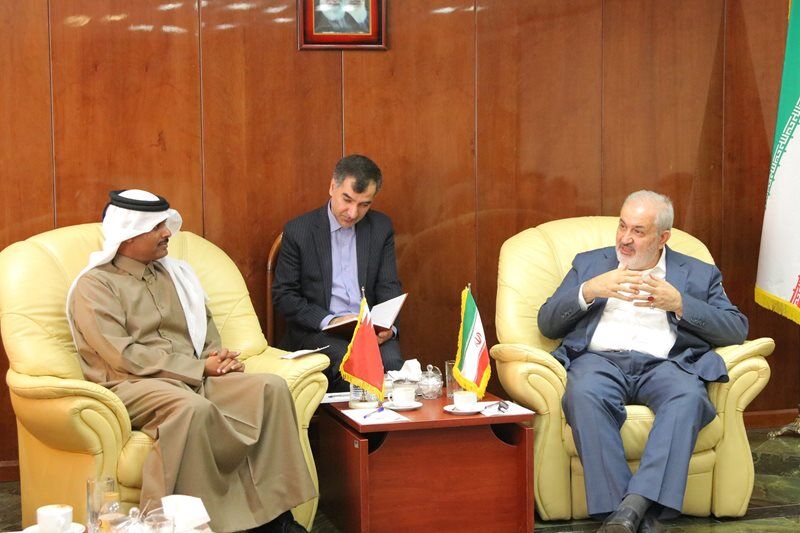
Following up on a week-long visit to Qatar in November, a United Nationals human rights expert has released a detailed report listing his findings, and urged the country to adopt reforms to protect its migrant worker segment.
Last year, François Crépeau, the UN special rapporteur on the human rights of migrants, met with several people living in labor camps, as well as expats in shelters, deportation centers and the central prison.
He also met with several senior level officials, including the Ministry of Labor and Social Affairs, Ministry of Interior, Ministry of Justice, Ministry of Foreign Affairs and the Public Prosecution.
In his report, which was released on Friday – months earlier than expected – Crépeau once again stressed his recommendation that Qatar abolish several tenets of its restrictive kafala system, including the no objection certificate (NOC) that expats must obtain from their sponsors before switching employers.

He criticized punishing expats who leave their employers without an NOC, and who are labeled as runaways. “They lose their residence permit and risk fines, imprisonment and deportation. The Special Rapporteur believes this system can amount to forced labour.”
He also said many government officials “were of the opinion that the kafala system is problematic,” and that he has been told that Qatar is seriously reviewing its sponsorship law.
Meanwhile, today’s Peninsula reports several businessman as saying the government has been discussing with them potential changes to the law, and that reform could be imminent.
Rationale
The current sponsorship system in Qatar maintains support in the business community for several reasons, many of which Crépeau took issue with. In his report, he said:
“It has been argued that the kafala system is necessary because of the large number of migrants in Qatar. This cannot be used as an excuse for maintaining legislation that renders migrants vulnerable to abuse and exploitation. The Qatari authorities decide on the number of migrants they wish to admit to their territory. The demographic situation in Qatar is thus a result of Government policies and decisions, a nationwide choice of rapid development and a high level of household services.”
However, supporters of kafala argue that without the system, many Qatari businesses would not be protected. Speaking to the Peninsula, Remy Rowhani, CEO and Director General of Qatar Chamber (QC), explained why many sponsors fear change to the exit permit system. He said:
“The problem is that if someone is under my sponsorship and he has signatory powers, such as the right to sign checks etc, he can do that and leave the country, and I will not be able to have a say in it. After he is gone, the concerned bank will come to me and ask me to repay the millions of riyals he has taken away.”
However, Crépeau argued that such logic would only apply to a small number of expats, which “does not justify the preemptive punishment of thousands. It is a source of abuse and there is no valid justification for maintaining this system.”
Another incentive to preserve kafala may be the high cost of recruiting expats to Qatar, and the sponsors’ desire to hold on to their “investments.” The rapporteur suggested addressing this by reducing the amount of money paid to recruitment companies and lowering the cost of visas.
Entrenched racism
One of the biggest hurdles to change may be widely held negative perceptions of migrant workers, who are often seen as the “property” of their employers, rather than human beings, Crépeau said. He continued:
“This is reflected in the systematic exploitation of migrants, who often live in slum-like conditions, work excessive hours in difficult and dangerous conditions and are often not paid for several months. Domestic workers are particularly vulnerable to such practices. This may unfortunately reveal entrenched discrimination, if not racism, when the victims are non-Qataris.”
Earlier this week, Amnesty International alluded to this problem in its new report on domestic workers in Qatar, saying media coverage of maids often stigmatizes this segment of the population by painting them as maids, witches and “a threat to the future of society.”

Crépeau suggested mitigating this issue by urging authorities to create a more positive perception of expats in society and by highlighting these workers’ contributions.
Qatar attempted to do this over National Day in December 2013, theming the celebrations “One Love” to symbolize unity between locals and expats. But because celebrations were divided by nationality, the theme ended up prompting a debate about how difficult it is to integrate a country as demographically diverse as Qatar.
The rapporteur also called the tiered wage system for different nationalities, in which two people from different countries do not collect the same salaries for the same work, a form of racial discrimination.
Recommendations
In addition to abolishing kafala tenets such as the NOC and exit permit system, Crépeau recommended that Qatar work to ensure expats are properly informed of their rights. For example, employment contracts should be written in a language that the people signing them can read and understand.
He also suggested establishing a minimum wage and urged giving workers the right to organize (expats are currently not allowed to unionize).
Another recommendation was to become more transparent by collecting and publishing data on workplace accidents, complaints and abuse. He also suggested auditing construction companies and making the results public.
Regarding the court system, Qatar has long planned to establish a tribunal to solve labor disputes. Crépeau urged action on this plan, and recommended the court be easy to access, and offer interpreters, legal aid and quick settlements to disputes and enforcement of decisions.
Finally, he urged Qatar to bring domestic workers into the fold of the Labor Law, to ensure their rights are protected. The plight of these women is detailed in the Amnesty report published this week.
Here’s the full report:
Thoughts?







